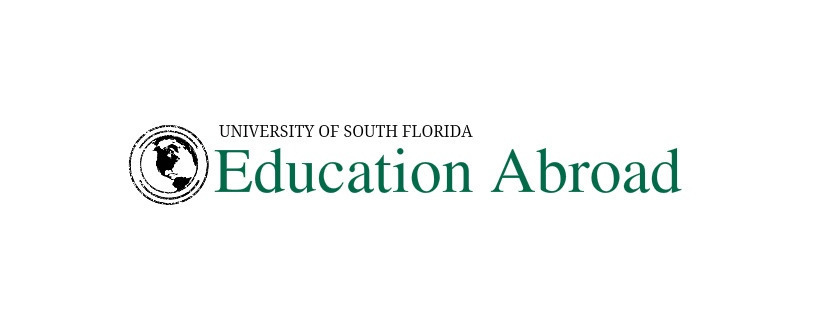It’s International Education Month and study abroad opportunities are available. Learn about ways for students to keep safe while abroad. Courtesy of USFSP
By Hope Weil
November is International Education Month. To celebrate, the Office of Multicultural Affairs will join forces with USF St. Petersburg Global Initiatives to host an Education Abroad Fair Tuesday.
The event will go over different study abroad opportunities and scholarships, and information on how to get a passport.
But while traveling out of the country, the question of safety becomes pertinent.
Safety concerns are common among students traveling internationally, but Joseph Kenny, Education Abroad program manager, says there are operations in place to ensure student safety.
Kenny has been with USF St. Petersburg’s Global Initiatives for two and a half years. He helps develop, manage, market and recruit all of the study abroad programs administered by the university.
“All faculty who lead study abroad programs in the in the USF system go on two types of trainings prior to departure for their respective programs,” he said.
During the trainings, faculty learn how to deal with student issues abroad, how to access USF resources when necessary, and how to manage expectations for students. Both meetings are usually two separate sessions.
Faculty are also required to attend a standard orientation before departure. Usually the information given at the orientations is altered based on where students are travelling, the number of students they are bringing, and what is involved in the program.
“Different programs have different leveled risks associated with them,” Kenny said. “A program like Food and Travel Writing in France and Germany is a pretty safe program.”
Former USF St. Petersburg student Shannon Gazdacka took Food and Travel Writing with Janet Keeler, a journalism professor, a few years ago. She recalled Keeler being reassuring during the trip and comforting her whenever she felt unsafe.
USF also has its own 24/7 international assistance phone number to dial in case of emergency.
The International Risk and Security Office also provides students with an online orientation through Canvas prior to the trip. Kenny says that the orientation used to be in person, but it recently migrated online to increase attendance rates and make it more accessible.
Each orientation module covers topics such as how to file an insurance claim while abroad, how to dial the faculty leader’s number on a USF cell phone from another country, and how to make sure the student’s bank is notified prior to departure.
Kenny said that in situations of terrorism abroad, the International Risk and Security Office oversees a Global Risk Assessment Committee.
“They break down all the countries in the world, on a tiered system that is based off of USF state department travel advisories and travel warnings,” Kenny said. “Their office is constantly monitoring events and seeing what other universities and colleges are doing abroad.”
The GRACC was used after the Paris attacks in 2015. There was a scheduled program to go to Paris, and the GRACC saw on its network that no other college institution or university had canceled their trip, so it followed suit and continued on with the program.
The committee tracks students throughout the trip and notifies them and faculty leaders if anything harmful is taking place nearby.
For more information about a semester abroad, the Education Abroad Fair will take place Tuesday from 10 a.m. to 1 p.m. in The Reef. If you have any additional safety concerns, Kenny can be reached at josephkenny@mail.usf.edu or (727)-873-4270.



